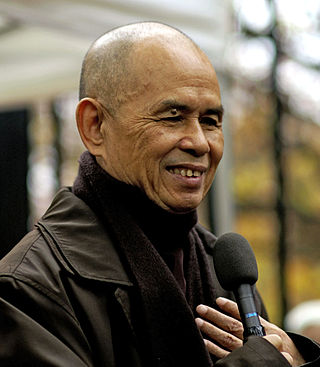
Thích Nhất Hạnh was a Vietnamese Thiền Buddhist monk, peace activist, prolific author, poet and teacher, who founded the Plum Village Tradition, historically recognized as the main inspiration for engaged Buddhism. Known as the "father of mindfulness", Nhất Hạnh was a major influence on Western practices of Buddhism.
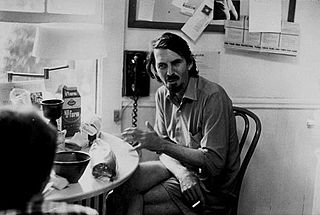
Robert White Creeley was an American poet and author of more than sixty books. He is usually associated with the Black Mountain poets, though his verse aesthetic diverged from that school. He was close with Charles Olson, Robert Duncan, Allen Ginsberg, John Wieners and Ed Dorn. He served as the Samuel P. Capen Professor of Poetry and the Humanities at State University of New York at Buffalo. In 1991, he joined colleagues Susan Howe, Charles Bernstein, Raymond Federman, Robert Bertholf, and Dennis Tedlock in founding the Poetics Program at Buffalo. Creeley lived in Waldoboro, Buffalo, and Providence, where he taught at Brown University. He was a recipient of the Lannan Foundation Lifetime Achievement Award.

John Lawrence Ashbery was an American poet and art critic.
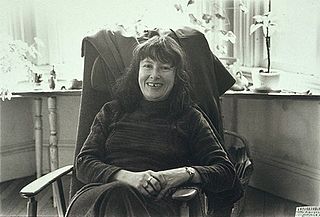
Priscilla Denise Levertov was a British-born naturalised American poet. She was heavily influenced by the Black Mountain Poets and by the political context of the Vietnam War, which she explored in her poetry book The Freeing of the Dust. She was a recipient of the Lannan Literary Award for Poetry.

Martín Espada is a Puerto Rican-American poet, and a professor at the University of Massachusetts Amherst, where he teaches poetry. Puerto Rico has frequently been featured as a theme in his poems.

Jack Gilbert was an American poet. Gilbert was acquainted with Jack Spicer and Allen Ginsberg, both prominent figureheads of the Beat Movement, but is not considered a Beat Poet; he described himself as a "serious romantic." Over his five-decade-long career, he published five full collections of poetry.

John B. Balaban is an American poet and translator, an authority on Vietnamese literature.

Brian Turner is an American poet, essayist, and professor. He won the 2005 Beatrice Hawley Award for his debut collection, Here, Bullet the first of many awards and honors received for this collection of poems about his experience as a soldier in the Iraq War. His honors since include a Lannan Literary Fellowship and NEA Literature Fellowship in Poetry, and the Amy Lowell Poetry Travelling Scholarship. His second collection, shortlisted for the 2010 T.S. Eliot Prize is Phantom Noise.

Mark Doty is an American poet and memoirist best known for his work My Alexandria. He was the winner of the National Book Award for Poetry in 2008.
Mary Ruefle is an American poet, essayist, and professor. She has published many collections of poetry, the most recent of which, Dunce, was longlisted for the National Book Award in Poetry and a finalist for the 2020 Pulitzer Prize. Ruefle's debut collection of prose, The Most Of It, appeared in 2008 and her collected lectures, Madness, Rack, and Honey, in 2012, both published by Wave Books. She has also published a book of erasures, A Little White Shadow (2006).

Linda K. Hogan is an American poet, storyteller, academic, playwright, novelist, environmentalist and writer of short stories. She is currently the Chickasaw Nation's writer in residence. Hogan is a recipient of the Lannan Literary Award for Poetry.
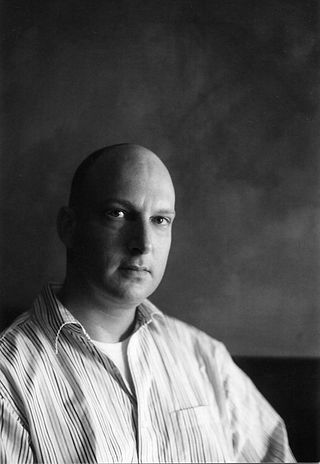
Richard Siken is an American poet, painter, and filmmaker. He is the author of the collection Crush, which won the Yale Series of Younger Poets Competition in 2004. His second book of poems, War of the Foxes, was published by Copper Canyon Press in 2015.

Tracy K. Smith is an American poet and educator. She served as the 22nd Poet Laureate of the United States from 2017 to 2019. She has published five collections of poetry, winning the Pulitzer Prize for her 2011 volume Life on Mars. Her memoir, Ordinary Light, was published in 2015.

Kay Ryan is an American poet and educator. She has published seven volumes of poetry and an anthology of selected and new poems. From 2008 to 2010 she was the sixteenth United States Poet Laureate. In 2011 she was named a MacArthur Fellow and she won the Pulitzer Prize.

Martha Collins is a poet, translator, and editor. She has published eleven books of poetry, including Casualty Reports, Because What Else Could I Do, Night Unto Night, Admit One: An American Scrapbook, Day Unto Day, White Papers, and Blue Front, as well as two chapbooks and four books of co-translations from the Vietnamese. She has also co-edited, with Kevin Prufer and Martin Rock, a volume of poems by Catherine Breese Davis, accompanied by essays and an interview about the poet’s life and work.
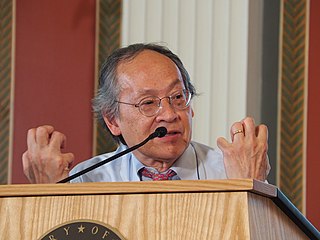
Arthur Sze is an American poet, translator, and professor. Since 1972, he has published ten collections of poetry. Sze's ninth collection Compass Rose (2014) was a finalist for the 2015 Pulitzer Prize for Poetry. Sze's tenth collection Sight Lines (2019) won the 2019 National Book Award for Poetry.
Peter Levitt is a poet and translator. He is also the founder and teacher of the Salt Spring Zen Circle, in the Soto Zen lineage of Shunryu Suzuki-Roshi.

Tyehimba Jess is an American poet. His book Olio received the 2017 Pulitzer Prize for Poetry.

Natalie Diaz is a Pulitzer Prize-winning Mojave American poet, language activist, former professional basketball player, and educator. She is enrolled in the Gila River Indian Community and identifies as Akimel O'odham. She is currently an Associate Professor at Arizona State University.
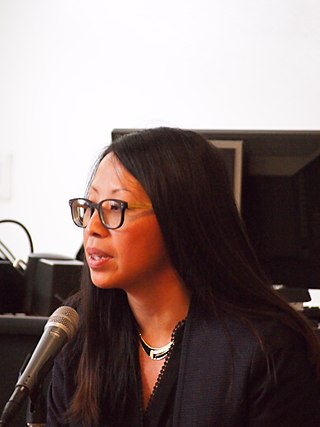
Mai Der Vang is a Hmong American poet.

















